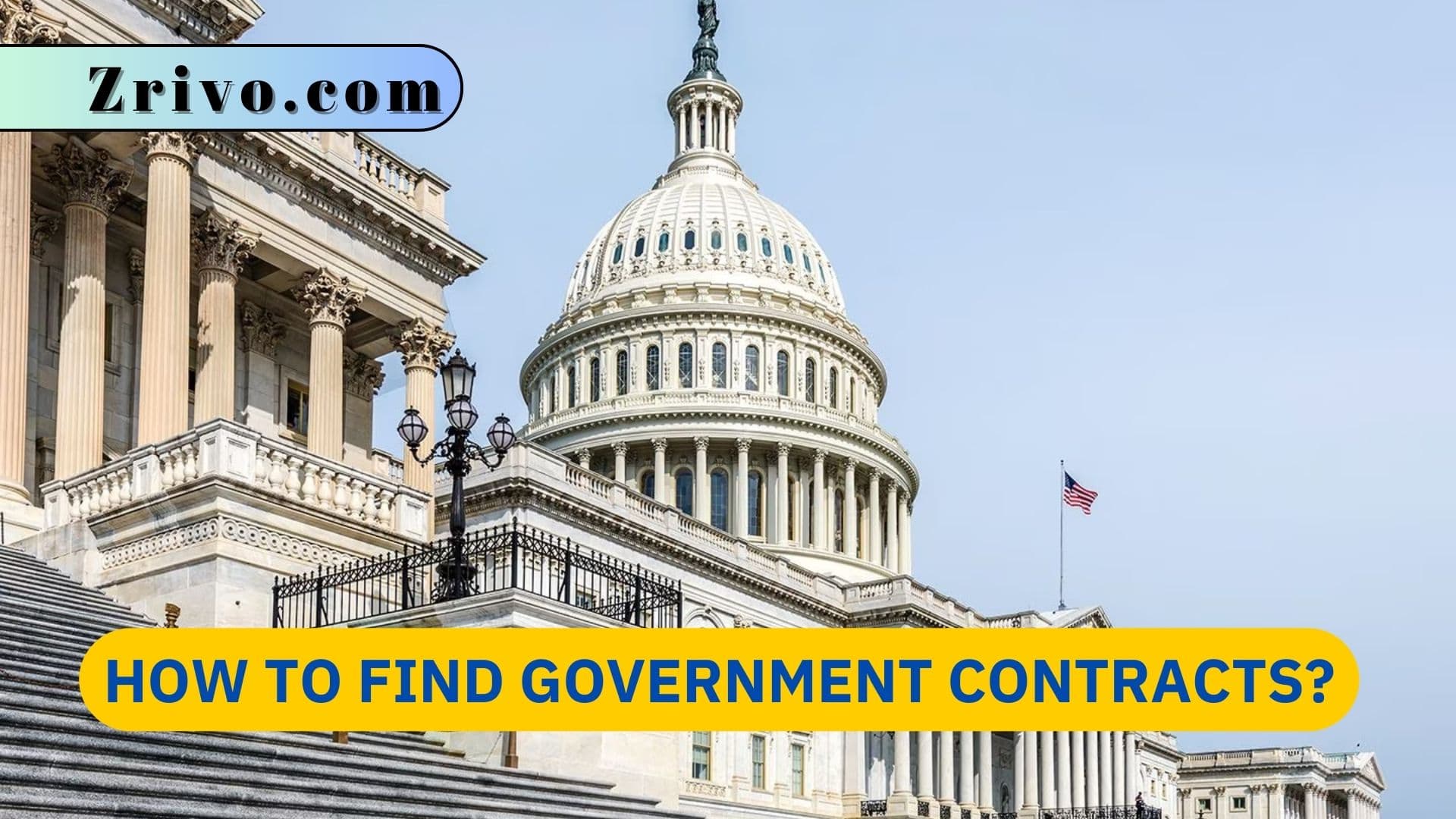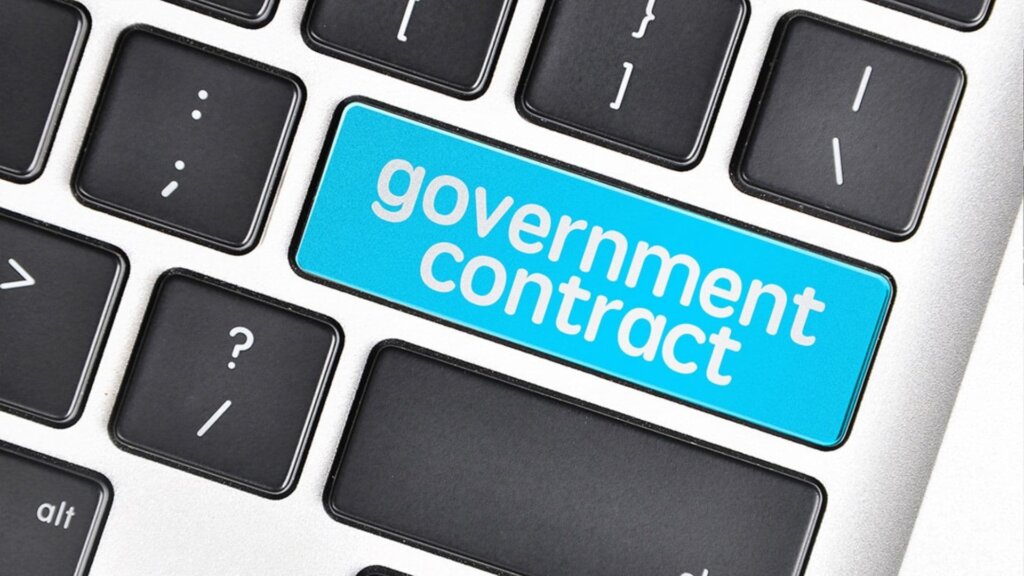How to Find Government Contracts?
Government contracting can be a lucrative business for SMMs. However, it requires persistence and familiarity with the application process.

Contents
Government contracts can be an excellent source of revenue for businesses that proactively search and analyze public sector opportunities. Companies can identify opportunities through a variety of sources, including market intelligence platforms and government websites. Once a company has identified its target opportunity, it can deploy a winning sales strategy to grow public sector sales.
What is a Government Contract?
A government contract is an agreement between a private company and a federal, state, or local government agency. The contract outlines the terms and conditions of providing goods and services. The government may require a company to provide specific types of products and/or services, or they can request a bid from several potential suppliers. The government is looking for established, reliable businesses with a proven track record of meeting deadlines and budgets. There are various types of government contracts, including cost plus percentage of costs (CPPC) contracts, firm-fixed-price contracts, and time and materials contracts.
A government contract can be an excellent opportunity for stable revenues and growth for small businesses. While the application process for a government contract can seem overwhelming, there are numerous resources available to help you get started. If you are unsure where to start, consider getting help from an experienced business adviser or contracting specialist. These experts can guide you through the entire process, from registration to submitting a proposal.

How to Find Government Contracts in SAM Gov?
There are several ways to find government contract opportunities, including searching through the System for Award Management (SAM). This government-wide portal consolidates the functions of multiple systems and information sources, including the Central Contractor Registration, Online Representations and Certification Applications, and Excluded Parties List System. SAM is free to use, and help is available for those who need it.
The SAM website also contains a database of federal contract opportunities. Anyone may search for opportunities, but creating a user account allows you to save searches and join interested vendor lists. The system also allows you to view procurement notices, including pre-solicitation and solicitation notices.
You can begin preparing your bid once you have found a contract opportunity. Most contracts are negotiated between the agency and a single firm, but some agencies offer simplified acquisition procedures, such as Request for Proposal (RFP), Request for Quote (RFQ), or Invitation for Bid (IFB). You should familiarize yourself with these terms before submitting your bid.
The SBA sets aside 23% of all federal contract dollars for small businesses, and you can improve your chances of winning by registering your business in the System for Award Management and creating a profile in the Dynamic Small Business Search. The latter helps agency procurement officers identify small-business contractors for upcoming contracts. Once you’ve made your profile in DSBS, you can apply for the SBA’s set-aside programs and gain additional benefits.

Tips for Winning Government Contracts
Winning government contracts can be a lucrative opportunity for businesses, but the process can be competitive and complex. Here are some tips to help you increase your chances of winning government contracts:
- Register Your Business: Ensure proper registration with government agencies, such as the System for Award Management (SAM) in the U.S. This is essential to be eligible for government contracts.
- Niche Focus: Specialize in a particular industry or area of expertise where your business can excel. Government agencies often seek suppliers with specific skills or knowledge.
- Market Research: Regularly search government procurement portals like Federal Business Opportunities (FBO) to identify contract opportunities that align with your business’s capabilities and objectives.
- Build Relationships: Actively network with government procurement officers, program managers, and other decision-makers. Attend industry events, conferences, and meetings to establish and nurture these connections.
- Certifications: Depending on your business type and location, consider obtaining relevant certifications such as Small Business Administration (SBA) certifications, Minority Business Enterprise (MBE) status, or Women-Owned Small Business (WOSB) certification. These can provide a competitive edge when bidding.
- Capability Statement: Craft a professional capability statement that succinctly showcases your company’s qualifications, past performance, and experience in a way that resonates with government agencies.
- Understand Procurement: Familiarize yourself with the specific procurement procedures and requirements of the government agency you’re targeting. Different agencies may have unique processes.
- Compliance: Ensure strict adherence to all relevant laws, regulations, and standards, particularly in areas such as security clearances, data protection, and quality control.
- Past Performance: Emphasize your track record by highlighting previous contracts or projects similar to the one you’re pursuing. Positive references from government clients can significantly bolster your credibility.
- Competitive Pricing: Develop a pricing strategy that is not only competitive but also aligns with the government’s budget constraints. Be prepared to justify your costs.
- Effective Proposals: Craft well-written proposals that directly address the government’s requirements. Tailor each proposal to the specific contract opportunity and meticulously follow submission guidelines.
- Team Up: Consider forming partnerships or subcontracting with other businesses, especially larger ones, to broaden your capabilities and access larger contracts.
- Persistence: Understand that winning government contracts can be a long process. Stay patient and persistent, as it often takes multiple bids before securing a contract.
- Stay Informed: Continuously monitor changes in government procurement policies and regulations, as these can impact your strategies and approaches.
- Performance Excellence: Once you secure a government contract, prioritize delivering exceptional service. Meeting or exceeding contract requirements can help you build a reputation for excellence, opening doors to more opportunities in the future.





